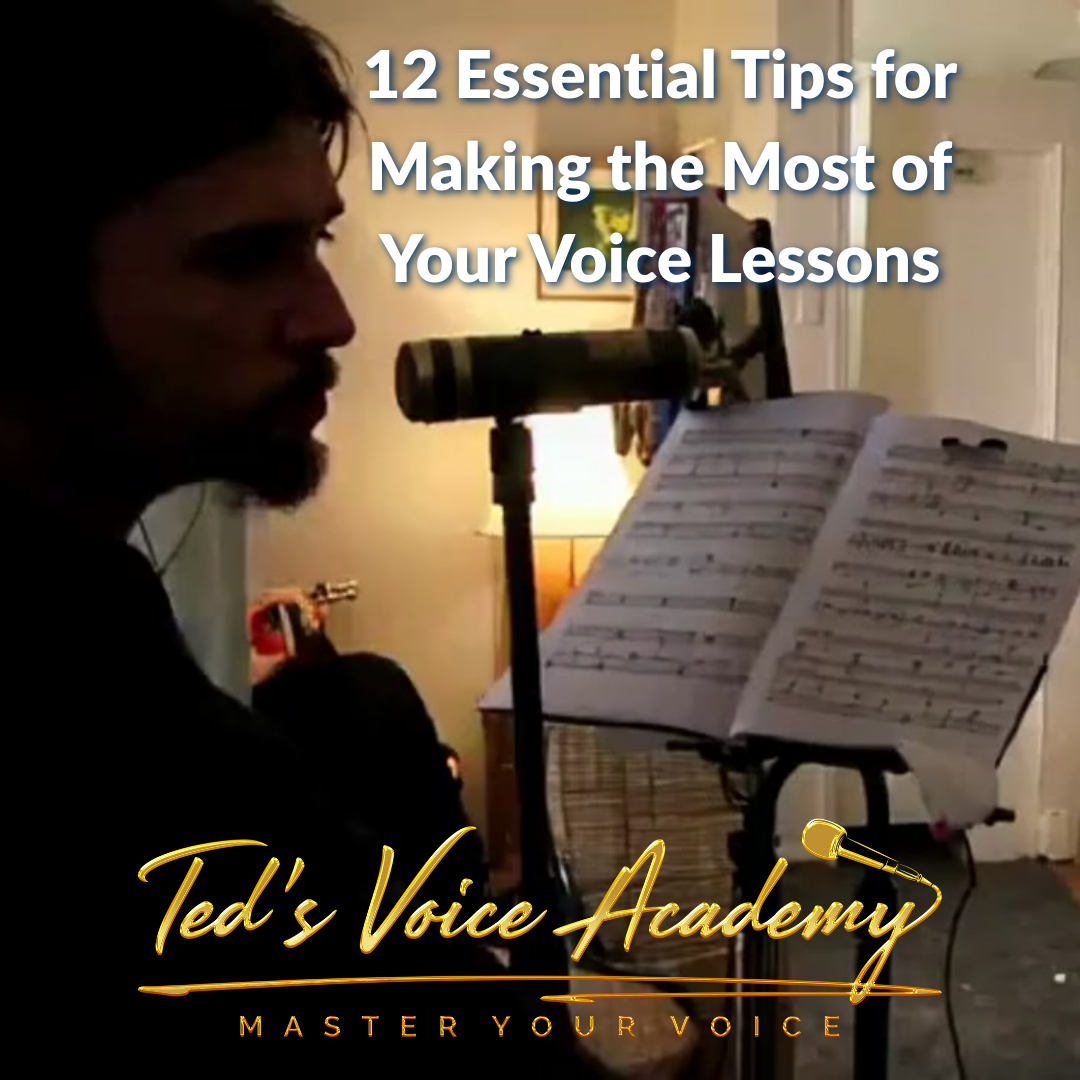Talent Is Earned, Not Given: Debunking the Myth of the ‘Gifted Singer’
There’s a moment from my childhood that sticks with me to this day. I had just finished singing, and an adult said, “My, you have such a gift.”
“A gift?” I thought. Someone “gave” this to me?? While I smiled at the compliment, even then, I knew it wasn’t quite right. If I had a gift, it wasn’t for effortless vocal talent but for a deep love of singing, learning, and performing. What they didn’t see were the countless hours I’d already spent developing my voice—even as a child.
Over my lifetime, I’ve come to see this belief echoed everywhere. Society tends to view people who excel at something—whether singing, sports, or any other skill—as being “gifted” by nature, born with talents the rest of us could never achieve. But here’s the truth: talent isn’t some magical gift handed down from above. It’s earned, developed, and refined through effort, passion, and perseverance.
Let’s debunk this myth and explore how anyone with the desire to learn can develop a beautiful singing voice. [Or any other skill, for that matter.]
Talent vs. Skill: What’s the Difference?
Many people believe that talent is something you’re born with, while skill is what you develop through learning and practice. But the truth is, even talent itself is grown over time, not given at birth.
What we often call “talent” is actually the culmination of many hours of deliberate practice, guided learning, and continuous effort. While genetics may influence aspects like vocal range or one’s basic tone which stems from their specific physiology…size of vocal tract, etc,… they are not the deciding factor in success. What truly shapes your potential is the focused effort you put in and the guidance you receive along the way.
Daniel Coyle, in The Talent Code, explains that what we perceive as talent is actually the result of deep practice over time. This type of practice builds myelin in the brain—a substance that strengthens connections and helps us perform skills more efficiently. So, talent is something that’s grown through hard work and persistence, not something you’re simply born with.
The Power of Environment and Early Exposure
Let me tell you about my own journey. I grew up surrounded by music—my mother was a piano teacher, church organist, and choir director. I joined a boy choir at age 9, and in second grade, I sang my first solo—in German—thanks to my German music teacher.
But while my environment nurtured my love for music, it didn’t make me a great singer automatically. Years of practice, lessons, and performances helped me hone my voice. I earned degrees in vocal performance and music education, achieved National Board Certification, and spent decades learning, performing, and teaching.
Your environment can offer opportunities, but your effort is what transforms potential into skill. Research shows that deliberate practice, mentorship, and resilience help shape talent. Given enough repetition and focus, the brain adapts, allowing us to achieve almost any skill at a high level.
The Myth of Effortless Mastery
There’s a common myth that some people are naturally good at singing, performing effortlessly without struggle. This couldn’t be further from the truth.
Every great singer has to put in the hours. They train, rehearse, and study their craft relentlessly. I’ve spent over 50 years developing my vocal performance skills by singing solos, singing, in quartets, choirs, learning in schools and workshops, being coached, coaching students, running my voice studio, teaching in public schools and community choirs/choruses. Every bit of progress I made came from deliberate effort, not from some “natural talent.”
Deliberate practice—a concept made famous by psychologist Anders Ericsson—isn’t about repeating the same songs. It’s about honing specific skills, addressing weaknesses, and refining technique in small, manageable steps. Success comes from solving vocal challenges one note at a time.
Additionally, mental resilience plays a crucial role in developing talent. When faced with setbacks, it’s the ability to push through, analyze mistakes, and try again that leads to growth. Talent isn’t about an effortless start—it’s about the dedication and resilience to reach your goals.
Passion and Persistence: The Real Gifts
If I had to pinpoint one true “gift” in developing your voice, it’s passion. Passion fuels you through tough moments, times when progress is slow, or when your voice doesn’t cooperate. It’s that love for the craft that keeps you going when others might give up.
But passion alone isn’t enough. Persistence—the willingness to keep working even when it’s hard—is equally important. That’s how I kept growing as a singer and teacher: through persistence, guided by my passion for music.
Yes, You Can Learn to Sing Well
After decades of teaching, I firmly believe this: anyone who has the desire to learn can sing well. Talent isn’t something you’re born with—it’s something you build with focused practice, great mentorship, and dedication.
While genetics might lay a foundation, the most important factors—consistent training, a growth mindset, and a supportive environment—are within your control. I’ve worked with students who initially believed they couldn’t sing, and they left with confidence in their new abilities. Why? Because they put in the effort with a structured plan.
Whether you’re a beginner or an experienced singer looking to refine your technique, the formula remains the same: desire, smart practice, and persistence. And it’s never too late to start.
Busting the Myth: What the Research Says
If you’re still questioning the idea of “innate talent,” let’s dive into the research.
- Daniel Coyle’s The Talent Code explains that repeated, focused practice builds myelin in the brain, leading to faster and more precise skill execution.
- Carol Dweck’s work on the growth mindset proves that people who believe they can improve through effort (rather than thinking their abilities are fixed) are far more likely to succeed.
- Anders Ericsson’s Peak highlights the importance of deliberate practice—not just logging hours, but improving specific weaknesses through focused effort.
These studies show that while genetics might set the stage, it’s deliberate practice, mindset, and effort that determine success.
Ready to Sing? Here’s Your Call to Action
If you’ve ever doubted your ability to sing, now’s the time to let go of that myth. You can learn to sing beautifully, no matter where you start. All it takes is the right mindset, a great coach, and the willingness to practice.
When you’re ready to begin or continue your journey into the art of singing, seek out an experienced vocal coach. A great coach will provide the personalized instruction and guidance you need to reach your potential.
Remember, talent is earned, not given. The voice you dream of having is within reach—let’s go get it together!
Conclusion: Talent is Earned, Not Given
The myth of inborn talent has held too many people back for too long. But anyone with the desire to learn can develop their voice. While genetics may provide a starting point, it’s consistent effort, practice, and support that lead to real growth. With passion, persistence, and the right guidance, you can achieve things you never thought possible.
Take the first step today. Whether you’re discovering your voice or aiming for new heights, your journey starts with effort, dedication, and belief in your ability to grow.
Ready to sing? Let’s make it happen.





Leave a Reply